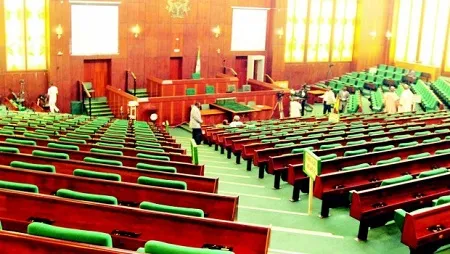NACCIMA, OPS, LCCI Oppose 4% Customs Levy Implementation
… Govt Should Support, Not Stifle Businesses With Additional Levy-NACCIMA
…Customs Levy Will Disrupt Business Operations, Increase Transaction Costs-LCCI
The National President of the Nigerian Association of Chambers of Commerce, Industry, Mines and Agriculture (NACCIMA) and the Chairman of organized Private Sector of Nigeria, Dele Oye has kicked against the 4 per cent charges on Free On-Board (FOB) value of imports.
In an interview monitored by THE WHISTLER, Oye argued that the additional taxes would stifle the growth of the manufacturers and businesses.
He explained that the tax would add undue burden to consumers if not properly administered.
The NACCIMA boss said, “The government should engage more stakeholders before major decisions are taken. Just like yesterday, we saw an announcement that the Customs will enforce the four per cent on FOB for goods coming into Nigeria.
“We are just coming out of reforms, the industries are just recovering. We have not fully recovered. We are just trying to get the little benefit of it.”
Oye, however, appealed for the suspension of the four per cent tax.
“I will appeal for them to suspend that now or at least, let it focus on people buying luxury goods.
“Anybody who is interested in production or wants to use it for raw material should not be saddled with the additional four per cent. It used to be one per cent,” he added.
He said the tax would frustrate the government’s agenda to drive down inflation to 15 per cent.
Oye lamented that the public sector which should support industries is frustrating manufacturers at the expense of the country’s economic growth.
“The government should support industries by not increasing or imposing more taxes. Companies do not pay taxes, they pass it on to the consumer,” he added.
Also, the Lagos Chamber of Commerce and Industry (LCCI) has called on the Federal Government and the Nigeria Customs Service (NCS) to suspend the abrupt implementation of the newly introduced four per cent Customs Processing Charge (CPC).
The charge, which took effect on Tuesday, February 4, has sparked concerns within the business community due to its sudden enforcement without prior consultation.
In a statement issued by the Chamber, Director General of LCCI, Dr. Chinyere Almona expressed concern over the lack of stakeholder engagement before the introduction of the charge.
While acknowledging that the CPC is backed by the Nigeria Customs Service Act 2023, specifically under Section 18, LCCI criticized the failure to adhere to Section 23 of the same Act, which mandates public notification and consultations before the introduction of new levies.
Almona stated, “The business community, including importers, exporters, freight forwarders, and clearing agents, was not given prior notice or adequate time to prepare for this financial burden.
“Such an approach disrupts business operations, increases transaction costs, and creates uncertainty in the trading environment.”
The Chamber further noted that Nigerian businesses are already grappling with multiple financial challenges, including high-interest rates, inflation-driven operational costs, and a scarcity of foreign exchange for critical imports.
Additional levies such as the CPC, LCCI warned, could exacerbate the difficult business climate and discourage investments.
LCCI also highlighted that despite the Nigeria Customs Service surpassing its 2024 revenue target by over a trillion Naira, there remains an urgent need for investment in port infrastructure, process automation, and trade facilitation to enhance efficiency rather than imposing additional financial burdens on businesses.
The Chamber cautioned that the sudden implementation of the charge could lead to congestion at ports, as traders and clearing agents may delay shipments in response to increased costs.
This, in turn, could disrupt supply chains, negatively impact revenue generation, and further erode investor confidence in Nigeria’s economic environment.
LCCI called on the government to prioritize trade facilitation, reduce bureaucratic bottlenecks, and adopt international best practices by ensuring that trade-related policies are implemented transparently and inclusively. The Chamber reaffirmed its readiness to collaborate with relevant stakeholders to ensure that policies support economic growth rather than hinder it.
“We urge the Nigeria Customs Service to reconsider this abrupt implementation and engage stakeholders in meaningful dialogue to foster a more business-friendly environment,” Almona concluded.








